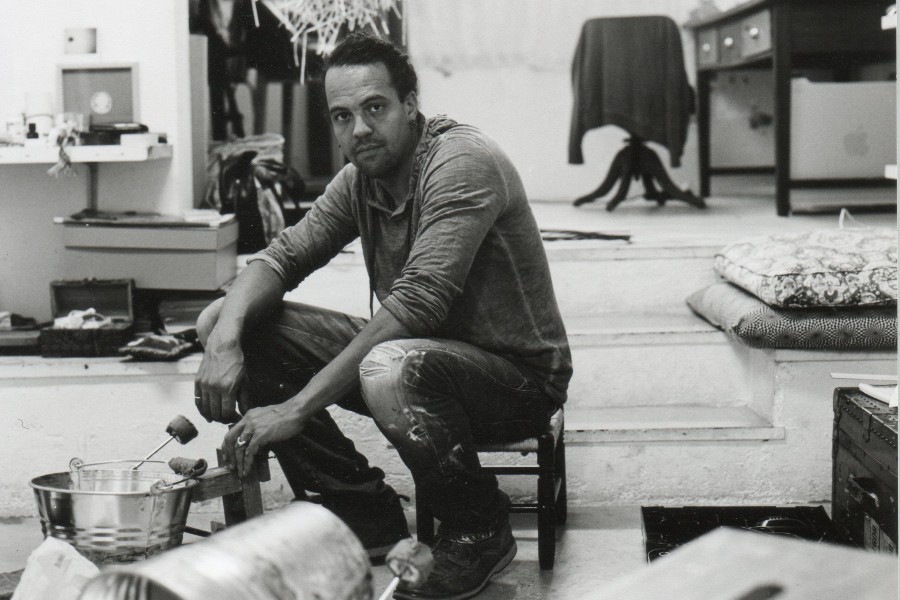Black Posterity: A Lecture with Artist & Activist Justin Randolph Thompson
Tuesday, September 15, 2020 5:00 PM-6:30 PM
Virtual

The Department of Visual Arts presents a lecture by Justin Randolph Thompson, a new media artist, cultural facilitator and educator on Tuesday, Sept. 15 at 5:30 p.m. to 7 p.m. This lecture will be presented virtually on Zoom.
Living between Italy and the U.S. since 1999, Thompson is co-founder and director of Black History Month Florence, a multi-faceted exploration of African and African diasporic cultures in the context of Italy founded in 2016.
His lecture will engage two decades of art and activism reflecting upon global perspectives on Blackness, the stagnant perseverance of art historical cannons and the fostering of a recalibrated appreciation for the labor of art.
Arriving in Italy directly from Tennessee, Thompson’s work draws upon the folk history of the South transposed onto the political and socio-spiritual context of Italy. Installation, sound and performance are undercut with proactive community development and collectivizing.
Thompson’s practice is broadly collaborative and inherently interdisciplinary, relying upon the collective power of creative dialogue to provide platforms that envision communities as temporary monuments. Examining artistic and cultural production as forms of resistance, this lecture will touch on tactical institutional infiltration and the importance of training and facilitation as cultural catalysts.
About Justin Randolph Thompson
Thompson is a recipient of a Louis Comfort Tiffany Award, a Franklin Furnace Fund Award, a Visual Artist Grant from the Fundacion Marcelino Botin, two Foundation for Contemporary Arts Emergency Grants, a Jerome Fellowship from Franconia Sculpture Park and an Emerging Artist Fellowship from Socrates Sculpture Park.
His life and work seek to deepen the discussions around socio-cultural stratification and hierarchical organization by employing fleeting temporary communities as monuments and fostering projects that connect academic discourse, social activism, and DIY networking strategies in annual and biennial gatherings, sharing and gestures of collectivity.